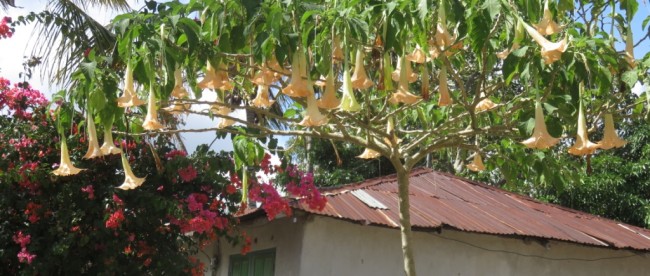Mining is essential to save Indonesian forests.
Mining is essential to save Indonesian forests. [Posted 15 Aug 2015, 171 views, 26 likes, 3 comments]
Historians define Mans development through the stone, bronze and iron ages as reflecting the development of mining, processing and trading industries. Such development allows for ever larger societies to live a better quality of life. When I arrived in Indonesia in 1975 to work in the South Sumatra coal exploration program, I traveled extensively about Indonesia. At that time most houses were made from wood, including wood slat (seri) roofs. Good hardwood was preferred to resist the termites, and the wooden roofs were considered coolest in this hot climate. Such wooden houses combined with Indonesia’s spectacular population growth placed an ever increasing environmental pressure on Indonesia’s forests, with regulations brought in to restrict and manage the flow of wood from forests to urban areas. Demand for housing continued to increase, with wood being replaced by brick and cement houses, while wood roofs were replaced by tin and baked clay tiles. Now Indonesia is 50% urban, with the tall apartment buildings, along with our infrastructure of roads, bridges etc all requiring cement, crushed rock, steel, aluminum, glass, copper wiring and plastic in many forms etc. All of these materials are derived from mining and processing. By mining in selected small locations we can supply the needs of a growing population rather than cutting down ever larger parts of Indonesia’s forests, thus mining prevents forest destruction.
The same story applies for our energy needs. Industrialization is here in many forms, from factory made clothes, factory made forms of transport, factory made solar cells and batteries, to the endless gadgets we increasingly rely upon to communicate with one another. Such factories need efficient power supply. At the beginning of the industrial revolution huge forests over Europe and Russia were cut down for steam boilers, but fortunately the development of coal & oil provided a more efficient means of energy release, and a few mines saved millions of hectare of the remaining forests. In the 1970’s virtually all Indonesian meals were cooked on wood fires, wherein only a few urban areas had access to, or could afford, gas for cooking. Fortunately Indonesia’s prosperity has included a strong government push to expand the mining and processing to produce domestic gas and electricity networks to replace wood fire cooked meals and night lights.

